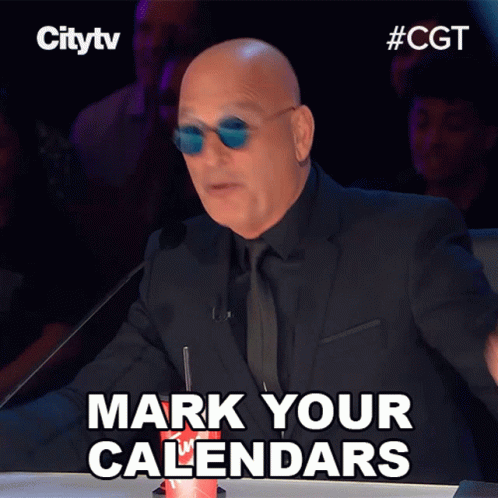How Parents Can Help Their Kids Prepare for a Piano Recital
What do piano teachers want parents to know about recitals? Find out now!

Piano recital season is upon us, and most piano teachers and their students are preparing for a big performance to show off the skills they have been practicing all school year.
All teachers have different styles of communication, so as a parent, you may or may not feel looped into what your child is working on or how you can help them prepare.
Here are some things that piano teachers want parents to know about piano recitals.
Get the date on your calendar

Most piano recitals are booked pretty far in advance. Once your teacher has announced a date, get it on your calendar so that you can prioritize attending. Piano teachers are working around a lot of different factors to choose a recital date, and of course, every family has their own scheduling limitations to consider. If you have other conflicts on the day of the recital, know that it means a lot to your teacher if you can prioritize being at the piano recital.
Find out what your child needs to do to be prepared
Your child has probably been working on specific music to prepare for a recital, but if you’re not sure exactly what that is, check in with your teacher and find out what your child should be practicing at home.
Ask your teacher if your child is expected to memorize any music, how many pieces will be performed, and if there are any other details to know.
Facilitate productive practice time at home
Once you know what is expected of your child, make sure that your child is set up for success and able to practice at home. Performing music requires a lot of consistent practice time. Piano practice can’t be crammed. It’s definitely not something that can be learned at the last minute or in one big practice session.
The best performances happen after day-in and day-out practicing that is very routine. It’s often messy and not always fun, but spending a lot of consistent time with music is what makes it become beautiful and performance-ready.
Help your child find this consistent time in their daily schedule. Help them remember to practice even when it doesn’t feel fun or interesting.
Find out the details of the recital

As the recital gets closer, find out specifics such as location, parking, what time to arrive, what students should wear, and what to bring.
A performance day can be nerve-wracking, so plan ahead to know exactly when and where your student and audience members need to be. Sometimes students might need to arrive a little early, or teachers may schedule some rehearsal time beforehand. Oftentimes, students just need to show up with their families a little bit before the recital starts.
Recitals can vary from being very casual to very formal, so be sure you understand your teacher's preferred dress code ahead of time and purchase any clothing needed for the performance. Some teachers might incorporate a fun element into the dress, such as a costume, themed accessory or studio-wide t-shirt.
Also, make sure you know if your student is expected to bring anything. Some students memorize their music, but others will need to bring their sheet music. Many students who have memorized music like to have their book nearby as a security blanket. If your student insists on bringing a book even though their music is memorized, understand that it might just feel comforting to them to know that it’s there or they may want to look at it for a minute before they perform.
Find small opportunities to practice performing
One of the biggest challenges about performing is that kids have to quickly adapt to playing the piano in a new place and in front of new people. Even if a student is really prepared and confident, playing in a new environment can feel really disorienting. A great way to prepare for this feeling is to do it over and over. Students can do this by finding simple opportunities to practice playing on different pianos and in front of different people.
Some school music teachers are open to the idea of students performing during a school music class. If you regularly visit any places - school, church, friend’s homes, etc. - with a piano, see if you can squeeze in a quick run-through performance while you’re there. If you don’t tend to be around a piano in different places, you could always practice at home by gathering friends or family to listen or including long-distance relatives over video chat.
Even though these situations are much less formal than a real recital, they still put just a little bit of pressure on your child and help them learn what it is like to work through that nervousness or uncertainty that might creep in when people are watching them.
Invite friends and family to attend

Having a fan club present to cheer your child on makes the experience feel SO special! It really means a lot to the students when they know their friends and family are taking time to watch something that is important to them. There’s almost always space to include grandparents, aunts, uncles, cousins and close friends in the audience. Just double-check with your teacher to make sure there is plenty of room for your guests or if there is a limit to how many you can invite.
Help your child understand what they will need to do
You never know how your student is going to react to the idea of performing. Some kids are completely unphased, while others are really nervous about the idea of playing in front of other people. Your child's response might surprise you and seem out of character. It will probably even change from year to year.
Talking through what will happen at the recital will help things run more smoothly. Help your student understand where they will sit, how they will know when it’s their turn to play, and what they need to do once it’s their turn. Most teachers will spend a lot of time in lessons talking through all of these details and even practicing going through the motions. If your child seems unsure about what is going to happen, ask your teacher.
Be your child’s biggest cheerleader
You will likely start to feel nervous on your child’s behalf as the performance day approaches. It’s really important not to project your nervousness onto your child before a performance. Try to stay positive and encouraging in the days and moments leading up to the recital. Speak affirming thoughts to them and remind them of how great they will feel at the finish line. If your family likes to celebrate accomplishments, have a treat or special thing to look forward to after when the performance is over.
Remember that it’s very normal for students to have a few stumbles and hesitations when performing. These little slip-ups aren’t a big deal, and they don’t take away from the overall achievement of performing. But, it’s very common for kids to get really caught up on all of the tiny little things that happened. There’s a good chance that you didn’t even notice or that it didn't seem like a big deal, but to your child, it might be the one thing that stands out to them from their performance.
Find the best qualities of your child’s performance to praise when they are finished. Read this post to learn 75 ways to praise a student after a performance:

Help your child process the experience
There are a lot of feelings that take over after a performance. Students usually feel a sense of relief or excitement when their performance went well. It’s also normal for students to feel down or disappointed if it didn’t go as well as they had hoped. Even if the performance seemed great from your perspective, kids might dwell on the little imperfections.
Give your student space to work out how they feel about their performance and help them make plans for things that could go differently next time.
There is a lot that goes into piano recitals for teachers, students and parents. Most importantly, enjoy the process and help your student have a moment to shine at their recital!


